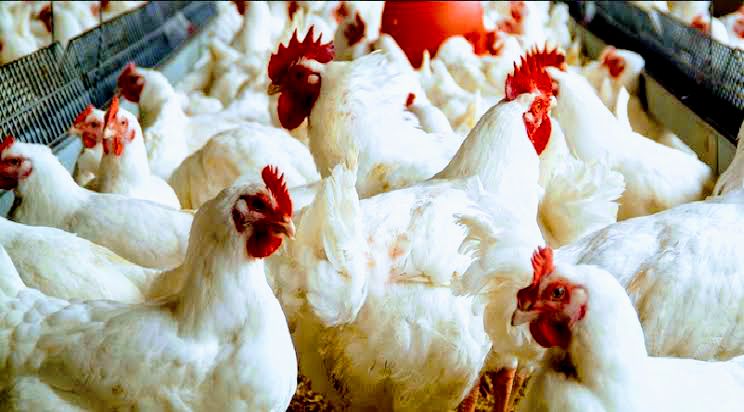Poultry farming in Nigeria is a thriving industry where birds like chickens, turkeys, and guinea fowls are raised primarily for their meat and eggs.
In addition to managing bird care and breeding, poultry farmers play a key role in Nigeria’s agricultural system.
The Nigerian poultry sector produces around 21 billion eggs annually, contributing over 20% to the country’s GDP and 30% to the agricultural GDP.
Yet, while Nigerians consume an average of 60 eggs per person each year, the figure in developed countries is around 250 eggs per person, revealing significant growth potential.
The industry is divided into three categories: small, medium, and large-scale production. Small-scale or backyard farms account for 60% of poultry production, while medium-scale farms contribute 15%, and large commercial farms make up 25%.
Nigeria ranks as the second-largest producer of poultry meat in Africa.
Farming methods vary depending on the scale and purpose. Some farms raise chickens in permanent chicken houses, while others use movable pens outdoors.
The right environment is critical for bird health, as chickens need proper feed, water, and warmth to grow efficiently.
The ideal temperature for raising chickens is between 28 and 33 degrees Celsius to promote feather growth and better digestion.
A poultry farmer in Offa Road, Mr Enuoyibo Okolocha, shared that his farm, which started in March of last year, produces both broilers (meat chickens) and layers (egg-laying hens).
He highlighted that feed costs are a major challenge, but poultry farming remains a profitable business. Broilers, which grow quickly, and cockerels, which are slower but more resilient, offer different advantages for farmers depending on market demand.
Another poultry farmer, Mr. Ibrahim Imar, also based in Offa Road, emphasized the importance of high-quality feed and clean water for healthy, productive chickens.
“Fresh, nutritious feed and proper medication are essential to prevent diseases,” he said.
He stressed the role of veterinary care in maintaining flock health and shared that he started his farm with just ₦50,000. Within six months, he achieved 100% profit, calling it one of the most rewarding ventures due to the quick return on investment.
For some, however, rising feed costs have become a significant barrier. Mr Adekunle Akinboye, a former poultry farmer, stopped his operations after Easter, citing the drastic increase in feed prices.
“I used to buy starter feed for ₦2,400, but now it costs ₦5,000. It’s become too expensive to continue,” he said.
Feed sellers, like Mr. Uzairu Shiehu in Mabera, have also felt the strain of rising costs. “I sell finishers for ₦1,700 and starter feed for ₦25,000 per bag. Transportation costs are high because of rising fuel prices, and I often have to pay extra to bring feed from the central market.”
Poultry farming also supports home-based operations. Mrs Okeke Amaka, who raises chickens for her family, shared that her flock comes in handy during celebrations.
“I usually slaughter five to six chickens every Christmas,” she said, adding that raising chickens helps her provide for her guests without needing to buy meat.
Despite its profitability, poultry farming can be risky. Mr Adeyemi Oluwatosin, who lost 50 chickens due to disease, shared his experience of financial loss and the emotional toll of seeing his entire flock die suddenly.
“I spent so much on feed, medicine, and electricity to keep them warm. After that, I decided not to return to poultry farming,” he said.
While poultry farming in Nigeria offers quick returns, it requires careful planning, financial investment, and dedication. Entrepreneurs in the industry must balance the costs of feed and care with the risk of disease outbreaks, but the rewards can be substantial for those who persevere.


